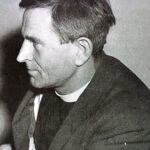AKLILU, HABTA-WALD
- 4 Min Read
Aklilu Habta-Wald (March 12, 1912- November 24, 1974) was prime minister of Ethiopia from 1961-1974 and was one of the most important Ethiopian politicians under the rule of Emperor Haile Selassie’s rule.

PHOTO CAPTION: Aklilu Habta-Wald. SOURCE: EA Library
He was born in Addis Ababa in 1912, the son of a Shawa clergyman, Aleka Habta-Wald. He was the younger brother of Makonnen Habta-Wald, who was a devoted protégé of Haile Selassie from the mid-1920s onwards. Aklilu was sent abroad for education, first to the Lycee in Alexandria, and subsequently to the Sorbonne, Paris, where he studied from 1930-1936. The French influence on his upbringing remained considerable, and he subsequently married a Frenchwoman.
He remained in Europe during the Italian occupation of Ethiopia (1936-1941), but returned after the Liberation, being appointed vice-minister of the Pen (the Emperor’s secretariat) in November 1942. In October 1943 he was appointed vice-minister and acting minister of foreign affairs, being confirmed as full minister in 1949, and holding the portfolio without a break until 1958, and then again from 1960-1961.
Many of his most substantial achievements date from this period. He played a major part in negotiating the Anglo-Ethiopian Agreement of 1944, which freed Ethiopia from the remaining restrictions imposed by the British following the Liberation, and signed the United Nations Charter on Ethiopia’s behalf as a founding member in 1945.
He was active in campaigning for the unification of Eritrea with Ethiopia, a goal which was achieved in 1952, and was Ethiopia’s leading representative at international conferences throughout the 1940s and 1950s. During this period he, for the most part, kept clear of domestic politics, and throughout his career his main interests continued to be in foreign affairs.
In November 1957, he became deputy prime minister, and (having been abroad with the Emperor during the 1960 coup which removed his brother Makonnen and other notables), was appointed full prime minister in March 1961. From then onwards, he used the powers of this office, coupled with the confidence he received from the Emperor, to extend his control over details of government administration which the ageing Haile Selassie was increasingly unable to supervise.
He accompanied the Emperor to the Organisation of African Unity (O. A. U.) and to other international conferences, co-ordinated policy on such matters as economic planning and new legislation, and increasingly was able to move his associates into leading managerial positions. At the same time, he had few policy commitments, beyond the gradual extension of modern administrative methods, his role remained that of a coordinator rather than a leader.
Though he formally received, in March 1966, the power to appoint other ministers, this power continued in practice to be exercised by, or in close consultation with, the Emperor. Most importantly, he had no political base other than the Emperor’s support. He was virtually unknown in the country as a whole, and had very little standing either with the military or with the provincial administration.
He was therefore easily sacrificed as a scapegoat when the strikes and military insurrections which ultimately led to Haile Selassie’s deposition began in February 1974. He continued to act as a personal adviser to Haile Selassie, but was arrested by the armed forces in July, and was one of 52 leading military and political figures executed without trial by the new military regime on November 24, 1974.
He was the most prominent member of that pre-World War II generation of Ethiopians who, educated by Haile Selassie and owing entire allegiance to him, worked to administer and to modernise Ethiopia within the imperial framework, and in so doing, became increasingly out of touch with the political aspirations of the younger generation of educated Ethiopians.
CHRISTOPHER CLAPHAM




